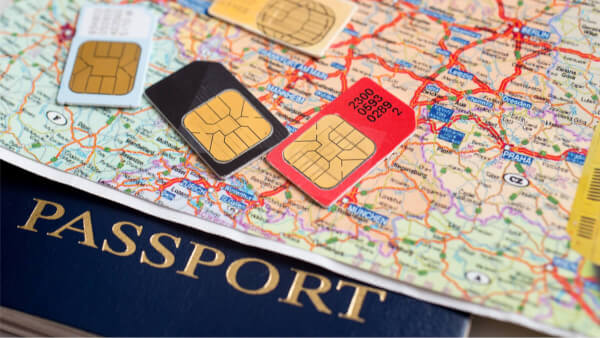NIB Travel Insurance. What’s on offer and how does it work?
Travel insurance is an important part of planning an international or domestic trip as travel doesn’t always go smoothly. An insurance policy can provide...

Famously thought of as the bridge between the East and the West, Turkey is a traveller’s dream. Boasting amazing natural beauty as well as stunning historic buildings, Turkey is also rich in culture, and wonderfully varied, from the bustle of the cities to the calm of the countryside. It’s no wonder that tourism is such big business there.
That’s why we’ve compiled this guide to planning a trip to Turkey. As well as some advice on what to do with your time there, it contains some tips that every traveller would do well to keep in mind: how to make sure you spend your money sensibly.
True, the most important thing about a holiday is that it gives you a chance to relax. But it’s still worth putting in a little bit of effort to plan your trip before you get out of your plane and realize you have no idea where to go next.
As well as looking up the basics before you travel – like how to get from the airport to your hotel, how to pay for stuff while you’re there, and where you’re actually going to go while you’re there – it’s well worth researching a little about how Turkey works and what it offers to tourists. That’s why this guide contains:
The Turkish currency is the lira, and at the time of writing there are 4.03 lira to one Australian dollar¹.
You may well be able to use your Australian credit or debit card while you’re in Turkey, but that doesn’t always mean it’s the best option. Costs for this can vary a lot, so it’s well worth checking with your bank to find out what they’ll charge you for using foreign ATMs and paying for stuff in a foreign currency. You could consider looking into specialist travel cards, or getting a borderless multi-currency account with Wise, which comes with a debit Mastercard you can use widely.
The traditional option for paying for stuff abroad, of course, is to get hold of some cash in the foreign currency before your trip. But while it remains useful to have a bit of cash on you, especially for smaller purchases, you should always watch out for bad exchange rates. Even if a currency exchanger is offering you “zero commission”, they’re almost certainly still making a tidy profit through the exchange rate.
A specialist account is a good way to save when you travel. Take a look at the Wise multi-currency account which offers a linked multi-currency Mastercard, as well as currency conversion using the mid-market exchange rate with no hidden fees.
You can hold dozens of currencies, and top up using dollars before switching to the currency you need for your trip. It’s then free to spend any currency you hold using your card, cutting out foreign transaction fees, and leaving you more to spend on yourself.
Australian citizens travelling to Turkey will need to get a visa, and it’ll be valid for 90 days.
It’s possible to do it when you get there, but much easier and more relaxed to get it sorted in advance of your trip. Get an e-visa from the official website. It’ll currently cost you 60 US dollars².
Make sure there’s plenty of time left on your passport.
There are plenty of options for places to stay in Turkey, and they vary widely, depending on both where you are, and how much you want to spend.
If you’re heading to Istanbul, it’s well worth booking in advance, because of the high demand from tourists. In other places, however, you might have luck simply turning up – although planning ahead is always a sensible thing to do.
Here are a few of the options you’ll have:
Turkey is huge, so it’s well worth planning your itinerary carefully. Here are your basic options.
Of course there are too many to mention, but here are a few of the manifold attractions that Turkey has to offer tourists, organized by area.
You’ll find whatever you want in Istanbul, Turkey’s largest city, whether you want vibrant nightlife or spectacular historical sites. The Hagia Sophia museum is unmissable, as are the Topkapı Palace, the Blue Mosque (Sultan Ahmed Mosque) and of course the Grand Bazaar.
The capital city, Ankara, is inland, in Central Anatolia. While there are plenty of remarkable historical places to visit such as Ankara Castle, it’s also a great spot to go shopping.
There’s more history on display in Antalya, but this time alongside stunning cliffs and beautiful beaches, in this Mediterranean coastal location. Even Australians, no strangers to beach culture, will be stunned by Lara and Konyaalti beaches.
Cappadocia isn’t one city but rather a whole region in Central Anatolia with some absolutely stunning natural scenery and historic sites. Take a hot-air balloon from Göreme or trek through the valleys, and stay in a cave hotel, for an utterly unique experience. The major city in the area is Kayseri.
That really isn’t it. Explore Ephesus – one of the most complete Roman cities anywhere – as well as Pamukkale (whose name means “cotton castle”), Bodrum, Safranbolu and Izmir, or avoid the cities altogether and trek your way up Mount Ararat… and you’ll still probably feel like you’ve only scratched the surface of what Turkey has to offer.
Want to get really off the beaten track? Check out the remarkable archaeological site of Gobekli Tepe, an 11,500-year-old site that may be among the oldest religious sites we know of. Or consider venturing to Ani, a medieval “ghost city” near the Armenian border.
Here are a few more useful facts that’ll help you get the most out of your trip.
Here are a few more words of advice about the culture you’ll experience in Turkey.
You might also be wondering if Turkey is a safe place to visit. Via the Smartraveller website, the Australian government cautions that you should “exercise a high degree of caution”, stay away from the Syrian border and Diyarbakir city, and reconsider plans to visit a number of other areas too. As is well known, there have indeed been terrorist attacks in Turkey in recent years.
With decent planning, you can put together a magnificent holiday in Turkey. Good luck exploring this wonderful country.
Sources:
Sources accurate as of 20 February 2020
*Please see terms of use and product availability for your region or visit Wise fees and pricing for the most up to date pricing and fee information.
This publication is provided for general information purposes and does not constitute legal, tax or other professional advice from Wise Payments Limited or its subsidiaries and its affiliates, and it is not intended as a substitute for obtaining advice from a financial advisor or any other professional.
We make no representations, warranties or guarantees, whether expressed or implied, that the content in the publication is accurate, complete or up to date.

Travel insurance is an important part of planning an international or domestic trip as travel doesn’t always go smoothly. An insurance policy can provide...

When travelling, you might face some unforeseen events or unexpected expenses. Travel insurance can help you cover these events and some might also provide...

Planning an overseas adventure or even a run-of-the-mill business trip? If so, hopefully securing adequate protection through travel insurance is high on your...

If you’re preparing to head overseas it is essential to invest in insurance and to make sure you understand your coverage and associated claim limits. Even if...

If, like so many Aussies, you love to travel overseas and enjoy new places and experiences, ensuring that you’re properly insured while travelling is a must -...

The advancements in telecommunications and technology have been rapid over the last two to three decades. Not only have mobile phones become smaller for the...